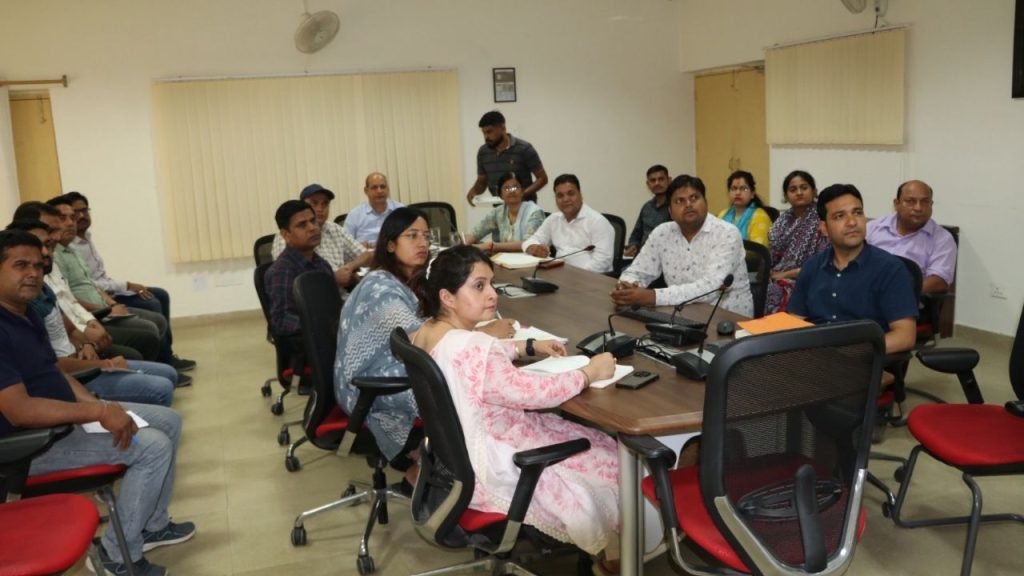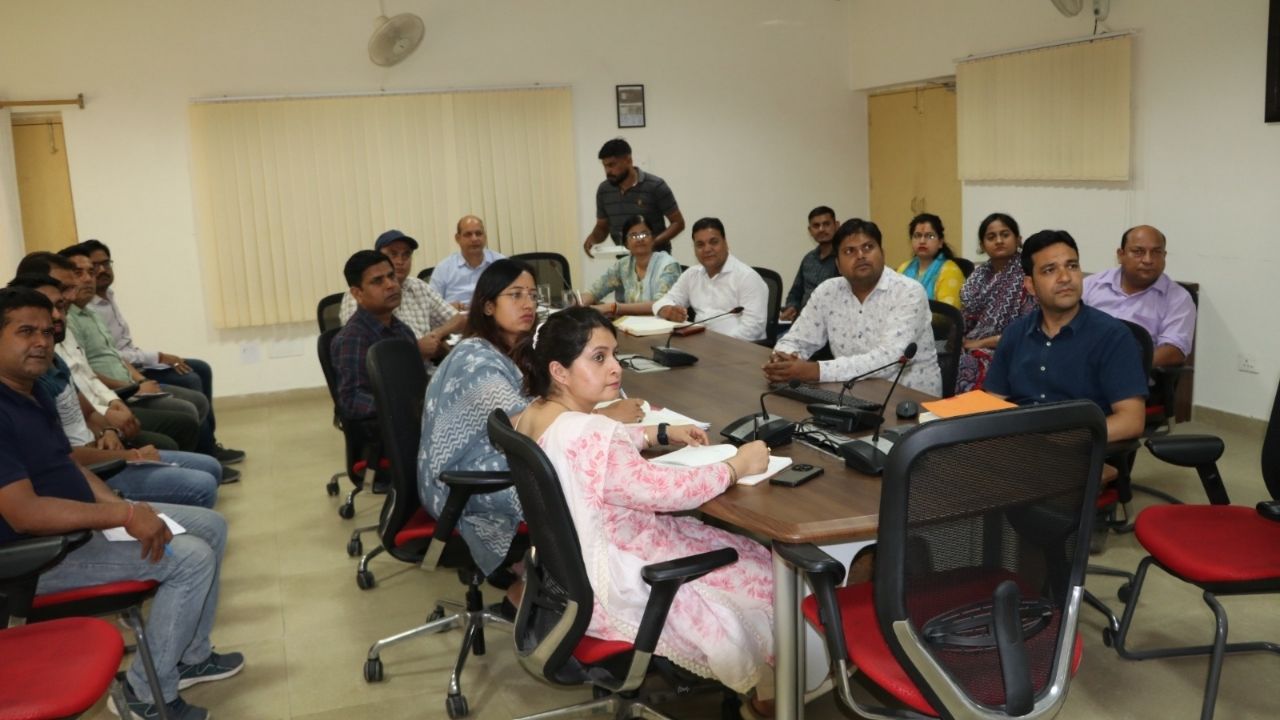In recent news, a tragic incident involving a young student from Fakir Mohan Autonomous College (FM College) in Balasore, Odisha, has sparked widespread outrage and prompted the Odisha government to intensify the investigation. A 20-year-old female student, who was battling severe mental trauma, tragically lost her life after self-immolating on July 12, 2025. The death of the student initially led to allegations of sexual harassment against a college professor, but with her passing, the charges were updated to include abetment of suicide. The move reflects the seriousness with which the authorities are treating the case and signals a commitment to justice.

In this article, we will dive deeper into the case, its broader implications, and the steps that can be taken to prevent similar incidents in the future. We’ll break down the situation, analyze key aspects, and provide practical advice to avoid such painful outcomes.
Odisha Govt Adds Abetment of Suicide Charges
| Topic | Details |
|---|---|
| Date of Incident | July 12, 2025 |
| Victim’s Allegation | Sexual harassment by Assistant Professor Samir Kumar Sahu |
| Charges Initially Filed | Sexual harassment |
| Charges Updated | Abetment of suicide and causing mental trauma |
| Arrests | Professor Samir Kumar Sahu, Principal of FM College |
| Government Response | ₹20 lakh ex-gratia announced by Odisha CM |
| Protests | Widespread student protests for justice |
| Official Reference | Odisha TV News |
The death of the 20-year-old student in Odisha is a painful reminder of the deep-rooted issues of harassment and neglect in educational institutions. It serves as a clarion call for change, urging the government and educational bodies to implement stronger safeguards for students. While no amount of compensation can bring back a lost life, the steps being taken by the authorities may offer hope that future incidents like this can be prevented. By focusing on effective reporting systems, better mental health support, and a zero-tolerance approach to harassment, we can move towards a safer and more supportive educational environment for all students.
Understanding the Incident
The incident began when a 20-year-old student, who was enrolled at FM College in Balasore, Odisha, allegedly faced sexual harassment by one of the college’s assistant professors, Samir Kumar Sahu. According to reports, the student lodged complaints with the college administration, seeking redress for the alleged harassment. Unfortunately, her complaints went unheard, and no immediate action was taken.
In what seemed like a last-ditch attempt for justice, the student, feeling cornered, reportedly sought out the principal’s office. This led to further distress when she was allegedly pressured to withdraw her complaint. The situation took a dark turn when the student was threatened with retaliation should she refuse to comply. Tragically, overwhelmed by the mental and emotional stress of the situation, she decided to take her own life by setting herself on fire.
Her death has sent shockwaves through the community, raising important questions about sexual harassment, institutional negligence, and the systemic failures that allowed this tragedy to unfold.
The Role of the Authorities
Initially, the police had registered the case under sections related to sexual harassment. However, as the investigation unfolded and the student succumbed to her injuries, the charges were updated to include abetment of suicide. This addition signals the seriousness of the situation and acknowledges the extreme mental and emotional toll that the failure of the authorities to take appropriate action may have had on the victim.
In the wake of her death, the Odisha government moved swiftly to arrest both the accused professor and the college principal. Both individuals were charged under multiple sections, including abetment of suicide and sexual harassment. The Odisha Chief Minister, Naveen Patnaik, responded by announcing an ex-gratia of ₹20 lakh for the family of the victim, underlining the state’s commitment to support the grieving family during this difficult time.
Why This Case Matters
This case has become a flashpoint for broader discussions on institutional failures, particularly in educational settings. Students across India, and especially in Odisha, have voiced their frustration over the failure of school and college administrations to address serious allegations of sexual harassment and bullying. In this particular case, the failure to act on the victim’s complaints, combined with the pressure to withdraw them, led to an unimaginable tragedy.
This incident shines a light on the need for stronger policies, effective enforcement, and a proactive approach to prevent such tragedies. It also underscores the critical importance of mental health support for students, as the pressures of academics, harassment, and emotional turmoil can be overwhelming.
How to Address Harassment and Prevent Future Incidents
While the death of this student is a harrowing tragedy, it also offers an opportunity to examine how institutions can do better in preventing harassment and ensuring students’ safety. Below are some practical steps educational institutions can take to protect students:
1. Clear Reporting Channels
Educational institutions should establish clear and accessible reporting channels for students who are experiencing harassment or bullying. This can include confidential helplines, an online platform for complaints, and a visible presence of counselors.
2. Immediate Action on Complaints
Once a complaint is filed, institutions should take immediate and transparent action. This includes initiating an inquiry, ensuring the safety of the complainant, and protecting their rights throughout the process.
3. Mandatory Mental Health Services
Mental health support should be a non-negotiable part of every educational institution. Schools and colleges should offer counseling services, mental health resources, and stress-management workshops to help students cope with personal and academic pressures.
4. Anti-Harassment Training
Both students and staff should undergo mandatory anti-harassment training to ensure that they understand the severity of such issues and the proper ways to respond when they arise.
5. Zero Tolerance Policy
Institutions should adopt a zero-tolerance policy toward harassment. This policy should outline the consequences for offenders and encourage a supportive environment where victims can speak out without fear of retaliation.
6. Regular Monitoring and Auditing
Schools and colleges should regularly monitor their harassment policies to ensure they are effective. Independent audits of these policies can help identify gaps and areas that need improvement.
Congress Leader Claims Odisha’s Land, Forests, and Future Are Being ‘Stolen
Passengers Left Stranded Amid Odisha’s Ongoing Fuel Crisis and Drivers’ Strike
Police Van in Odisha Carrying 22 Officers Meets Accident on Return from Rath Yatra
FAQs
Q: What are the charges filed against the college professor?
A: The college professor, Samir Kumar Sahu, has been charged with sexual harassment and abetment of suicide after the student’s tragic death.
Q: Why were the charges updated to include abetment of suicide?
A: The charges were updated after the victim succumbed to her injuries. The abetment of suicide charge reflects the belief that the actions of the college administration and the accused professor contributed to the mental distress that led to the tragic incident.
Q: What support has the Odisha government provided to the victim’s family?
A: The Odisha Chief Minister announced an ex-gratia of ₹20 lakh for the victim’s family to help them cope with the financial burden following the tragedy.
Q: What can schools do to prevent incidents like this?
A: Schools and colleges should establish clear reporting channels, take immediate action on complaints, offer mandatory mental health services, provide anti-harassment training, and enforce a zero-tolerance policy toward harassment.





